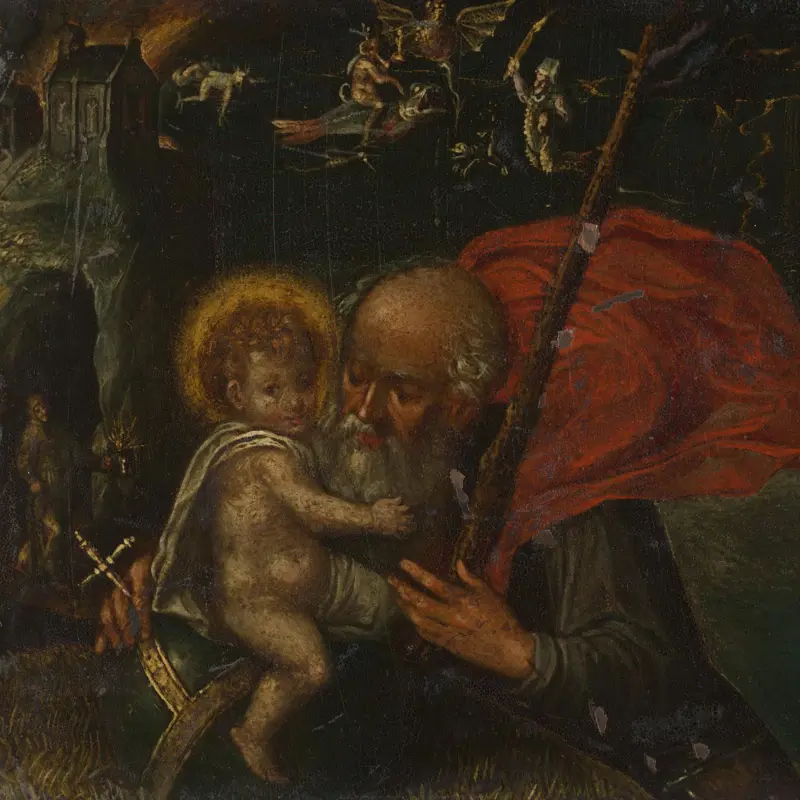German, 'Edzard the Great, Count of East Friesland', 18th century
About the work
Overview
The man in this portrait is mistakenly identified on the reverse as Ulrich I Cirksena, Count of East Friesland, who died in 1466. However, he looks more like Ulrich’s son, Edzard I, known as ‘the Great’, who became count in 1492. His sword is inscribed with a Latin motto: ‘Victor est qvi in / nomen domini pvgnavit’ (‘the victor is he who has fought in the name of the Lord’). The badge on his hat features an eagle, which was part of the coat of arms of the region.
Dendrochronology – a method of determining the age of a piece of wood by analysing its pattern of rings – has revealed that the wooden panel could not have been be used as a support for painting until about 1704; pigment analysis also shows the use of a colour only invented in the early eighteenth century. These tests confirm that the picture was not made from life but is either a copy or version of an earlier portrait. The Cirksena dynasty died out in the mid-eighteenth century, which may have prompted renewed interest in the family.
Key facts
Details
- Full title
- Edzard the Great, Count of East Friesland
- Artist
- German
- Date made
- 18th century
- Medium and support
- oil on wood
- Dimensions
- 48.9 × 36.2 cm
- Acquisition credit
- Presented by Mrs C.L. Eastlake in memory of her husband, Keeper of the National Gallery, 1907
- Inventory number
- NG2209
- Location
- Not on display
- Collection
- Main Collection
Provenance
Additional information
Text extracted from the ‘Provenance’ section of the catalogue entry in Susan Foister, ‘National Gallery Catalogues: The German Paintings before 1800’, London 2024; for further information, see the full catalogue entry.
Exhibition history
-
2010Close Examination: Fakes, Mistakes and DiscoveriesThe National Gallery (London)30 June 2010 - 12 September 2010
Bibliography
-
1945Davies, Martin, National Gallery Catalogues: Early Netherlandish School, London 1945
-
1955Davies, Martin, National Gallery Catalogues: Early Netherlandish School, 2nd edn (revised), London 1955
-
1987Davies, Martin, National Gallery Catalogues: The Early Netherlandish School, 3rd edn, London 1987
-
2001
C. Baker and T. Henry, The National Gallery: Complete Illustrated Catalogue, London 2001
-
2024S. Foister, National Gallery Catalogues: The German Paintings before 1800, 2 vols, London 2024
About this record
If you know more about this work or have spotted an error, please contact us. Please note that exhibition histories are listed from 2009 onwards. Bibliographies may not be complete; more comprehensive information is available in the National Gallery Library.


